Introduction
I’m sure you have heard the buzz about tankless hot water heaters and how they promise endless hot water and lower utility bills, and even Add Value To Your Home. But is this true and are they worth the hype and the upfront costs? Does it make sense to make the investment for your needs? If this is something you have thought about, you are in the right place. I’ve tried to include everything you need to know along with some links to additional information to help make an informed decision.
How Long Have Tankless Water Heaters Been Around?
First, let’s dispel any thoughts that tankless water heaters are a recent invention. These devices have been around for decades. It’s a mature technology with a lot of competition, so let’s dive in
Pros and Cons:
When it comes to evaluating whether tankless hot water heaters are worth the investment, you obviously need to weigh the pros and cons of making a change.
Pros
- Energy Efficiency: They use energy only when needed, which can lead to lower bills.
- Longevity: They typically last longer than traditional water heaters.
- Space-saving: Their compact size frees up valuable space in your home.
Cons
- Upfront Costs: The initial investment can be on the high side.
- Limited Capacity: They may not be suitable for large families with high simultaneous water usage.
- Servicing Requirements: They need to be serviced more regularly than their tank counterparts.
How Do They Actually Work?
Here’s a diagram of a typical Tankless Gas Hot Water Heater: Cold water from your house supply enters the unit through a pipe. When you open a faucet, a sensor detects flow and automatically ignites a burner. The water then flows through a heat exchanger, which is basically a looped pipe or plates with a lot of surface area that is in close proximity to the burner flames to rapidly heat the water as it passes through this section. Electronic temperature sensors on the inlet and outlet will adjust the burner intensity to maintain a constant temp that you set. Electric units function similarly but use electric heating elements instead of a burner
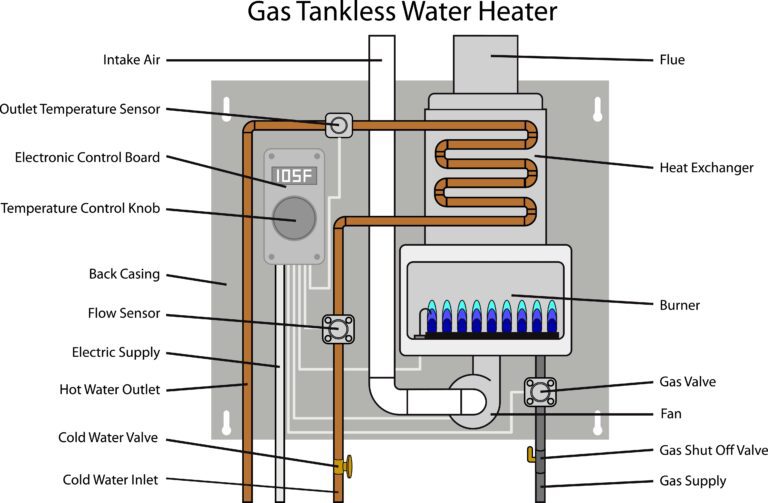
How Often Should Tankless Water Heaters Be Serviced?
So, how often should tankless water heaters be serviced? Generally, once a year is recommended. Regular maintenance can help mitigate some of the most common problems with tankless water heaters, such as mineral build-up and system overload. Manufacturers of traditional tank-type heaters will also recommend yearly servicing, and that’s not a bad idea. However, not many people follow this recommendation and in most cases it’s fine. Generally speaking, tankless heaters require service on a more frequent basis, so sticking to the 1-year recommendation is more important.
What Is the Difference Between Condensing and Non-Condensing Tankless Water Heaters?
This is one of the more important concepts to understand when considering a tankless water heater. Understanding the differences between condensing and non-condensing tankless hot water heaters is very important when making an informed purchasing decision. Here’s a deeper look into these two types.
Efficiency
Condensing Units: These are designed to be highly energy-efficient. They extract heat from the exhaust gases produced during the heating process and use it to pre-heat incoming cold water. This dual heat exchange system allows condensing units to achieve energy efficiency levels of 90% or higher.
Non-Condensing Units: These types are generally less energy-efficient, with levels often ranging between 80% and 85%. They have a single heat exchanger that heats the water as it passes through the unit.
Installation and Venting
Condensing Units: Because they operate at cooler exhaust temperatures, they can be vented with less expensive PVC piping. This can sometimes help offset the higher upfront cost of the unit itself.
Non-Condensing Units: These typically require stainless steel venting due to the higher exhaust temperatures. This can add to the overall installation cost.
Initial Cost
Condensing Units: These usually come with a higher price tag because of their increased efficiency and complexity.
Non-Condensing Units: Generally cheaper upfront, but you may have higher long-term operating costs due to lower efficiency and potentially more expensive venting requirements.
Maintenance
Condensing Units: May require slightly more maintenance to ensure that the additional condensing components are functioning correctly.
Non-Condensing Units: Typically have fewer components, which could mean less maintenance. However, the internal components may be subjected to higher thermal stress, potentially impacting longevity.
Space
Both types of tankless hot water heaters are compact and designed to save space, but condensing units might be a bit larger due to the additional heat exchanger.
Overall Performance
Condensing Units: Better suited for households with high hot water needs, as they are generally more efficient and can produce hot water at a more consistent temperature.
Non-Condensing Units: May be more appropriate for smaller households or those with lower hot water demand. These units are simpler and might be more straightforward to service.
So, if you’re looking for higher efficiency and are willing to invest in a more expensive unit and potentially lower installation costs, a condensing tankless hot water heater could be the right choice. If you’re looking for a less expensive upfront option and are willing to accept slightly higher operating costs, a non-condensing unit might be more suitable for your needs. In my opinion, the cost differential is almost always worth it to go with a condensing unit.
Now the $64,000 Question: How Much Do They Really Cost?
The typical installed costs of both condensing and non-condensing units can vary, depending primarily on the brand, model, and any additional installation requirements such as venting or electrical work. Here are some general estimates to give you a ballpark idea of the costs involved:
Condensing Units:
- Unit Cost: Typically, $1,000 to $2,500 for the unit alone.
- Installation Cost: Depending on the complexity of the installation, costs can range from $500 to $1,000 or more, especially if extensive piping, venting, or gas line modifications are needed.
- Total Installed Cost: Generally, the total cost, including the unit, labor, and any additional materials, can range from approximately $1,500 to $3,500 or more.
Non-Condensing Units:
- Unit Cost: Typically, $500 to $1,200 for the unit alone.
- Installation Cost: Similar to condensing units, installation can vary but usually ranges from $500 to $1,000, depending largely on the specific requirements of your home.
- Total Installed Cost: Typically, the total cost, including the unit, installation, and any additional materials, can range from approximately $1,000 to $2,200 or more.
Additional Considerations:
- Gas vs. Electric: Gas units often have higher installation costs due to the need for venting, while electric units usually have simpler, less costly installations but may require electrical upgrades.
- Location and Accessibility: The ease of access and location in your home can also impact installation costs. A straightforward, accessible installation will generally be less expensive than one requiring extensive modifications or additional piping.
- Local Labor Rates: Depending on your location, labor rates can vary, impacting the overall cost of installation.
Cost Thoughts:
It’s always a good idea to get several quotes from reputable installers in your area to get a good estimate based on your specific needs, and local labor rates. Keep in mind that while the upfront cost can be significant, the long-term energy savings, especially with condensing units, can offset the initial investment over time.
Do Gas Tankless Water Heaters Work When the Power Is Out?
I’ve heard this is actually a question that comes up when people start to investigate this option. Do gas tankless hot water heaters work when the power is out? You might think the answer is straightforward, however, it’s a bit nuanced. While the heating element can function without electricity, many modern units have electronic controls that do require power. You’ll need to check specific models for this feature. Having a whole-house generator would solve the problem as the control section of these units requires very little energy compared to an electric unit.
What Are the Most Common Problems with Tankless Water Heaters?
Some of the most common problems with tankless hot water heaters include inconsistent water temperatures and system overloads. Many of these issues can be addressed with regular servicing and choosing the right size and type for your needs.
Final Thoughts
So, are tankless hot water heaters worth it? I think in most cases they are. It’s a cool (or hot..LOL) technology. The answer for you depends on your needs, preferences, and willingness to invest upfront for long-term benefits. Understanding factors like how often they need to be serviced, their pros and cons, and the differences between condensing and non-condensing units can help you make an informed decision.
I hope this post gives you a better idea of whether making the switch to a tankless hot water heater aligns with your household needs and long-term objectives. Choose wisely, and you could enjoy endless hot water while potentially saving money in the long run.
Do you know how to Change the Temp on your Hot Water Heater? If not, let me show you how:
HOW TO CHANGE THE HOT WATER TEMPERATURE IN YOUR HOME:
EXAMPLE PRICING
While I’m not suggesting buying one of these on Amazon, I’ve included a few links below to a few typical household units so you can see some actual pricing.
($1,070) at the time this article was written
EcoSmart Element ECOS 27 Tankless Electric Water Heater, 27 kW at 240 Volts, 112.5 Amps with Self Modulating Technology
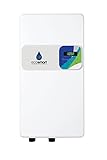
($549) at the time this article was written

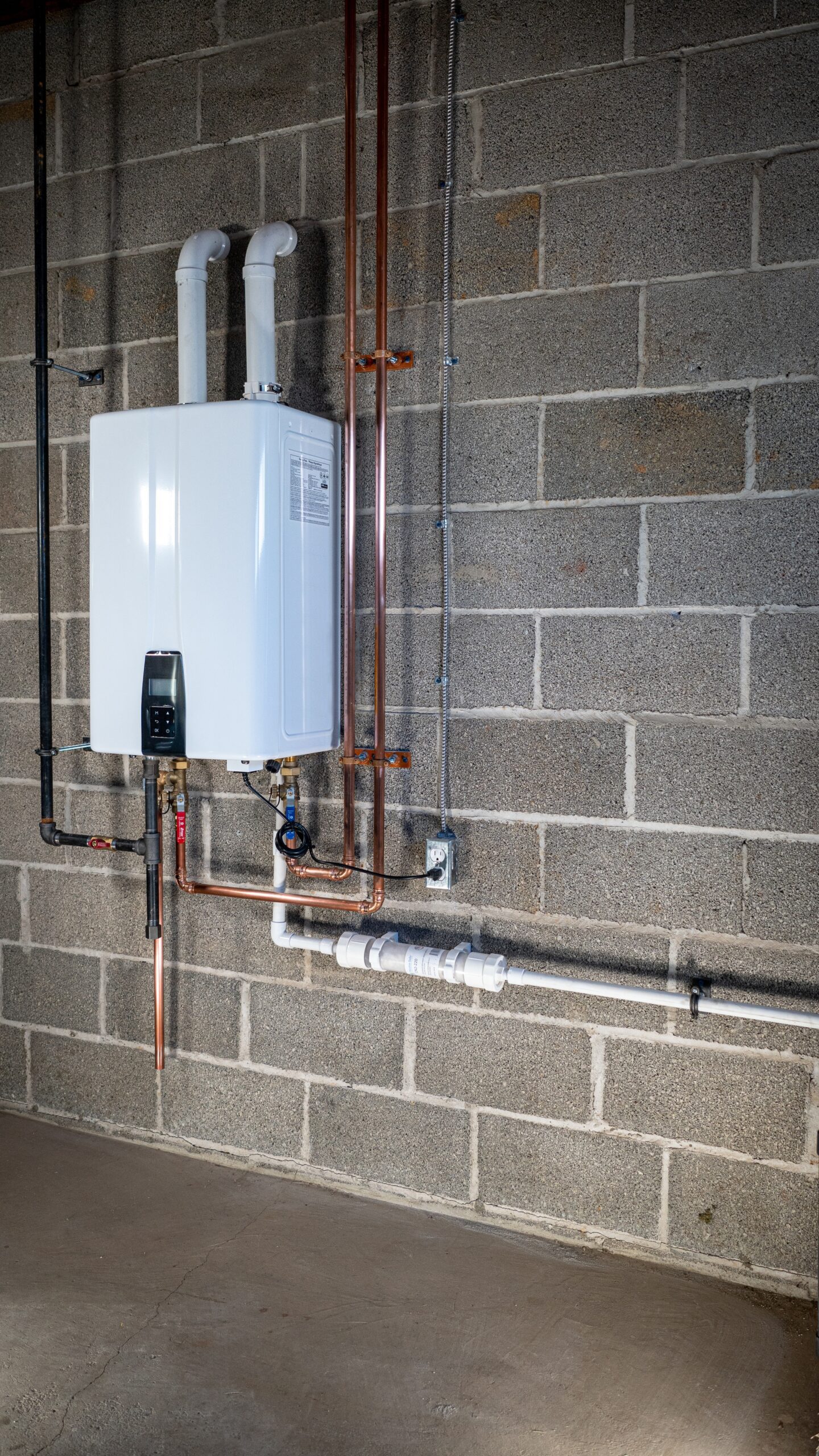
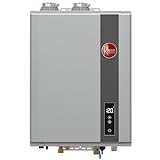
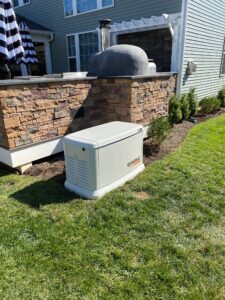
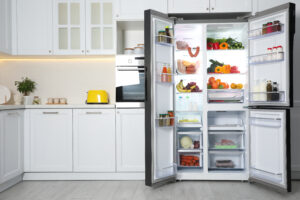
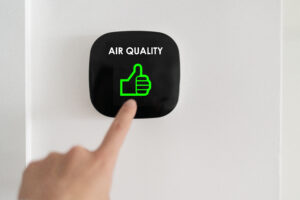
We’re trying to get new appliances for our condo unit, and I really want to find out how get the right models for it. This does make me think that we should figure out how to get a tankless model since you stated that it’s great at saving space. I’ll go and call over a plumber from the area so they can assist us with this kind of installation.
Good Luck Afton – drop us a note if you think about it and let us know how things go with the plumber and the installation. It should certainly save you some space!